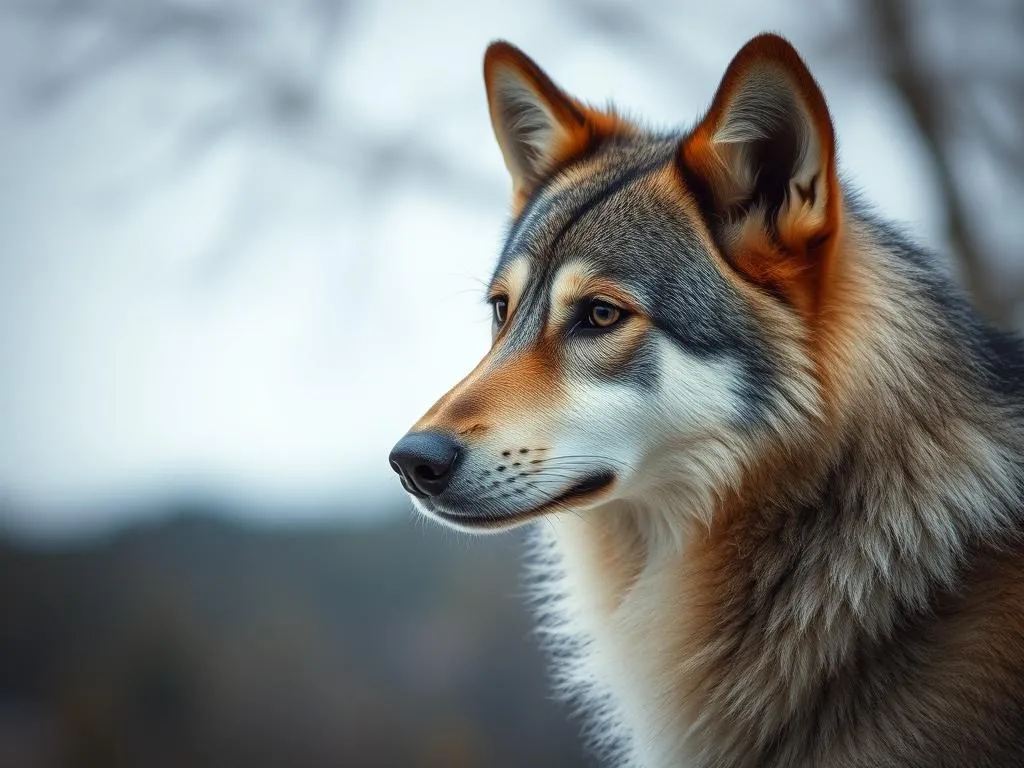
Introduction
The age-old debate of whether dogs are smarter than wolves has intrigued animal lovers, researchers, and pet owners alike. While dogs have long been praised for their loyalty, trainability, and ability to connect with humans, wolves are often seen as the epitome of wild intelligence. This article delves into the intelligence of both species, examining their evolutionary backgrounds, cognitive abilities, emotional connections, and the impact of domestication. Understanding these nuances not only enriches our appreciation of our canine companions but also informs conservation efforts for their wild relatives.
Understanding Intelligence in Animals
Defining Intelligence
Intelligence in animals is a multifaceted concept that encompasses various abilities. It is often defined by a combination of problem-solving skills, social interactions, and adaptability to environments. Different types of intelligence can be observed in various species, including:
- Social intelligence: The ability to communicate and interact effectively with others.
- Problem-solving intelligence: The capacity to navigate challenges and find solutions.
- Adaptive intelligence: The ability to adjust behaviors based on changing circumstances.
Measuring Animal Intelligence
Assessing intelligence in animals is complex, as it often requires the use of behavioral tests designed to evaluate cognitive abilities. Researchers utilize various methods, including:
- Maze tests: To gauge problem-solving skills.
- Social learning tasks: To assess the ability to learn from others.
- Memory tests: To determine recall abilities.
These methods provide insights into an animal’s cognitive capabilities, forming a basis for comparisons between species like dogs and wolves.
The Canine Mind: Dogs’ Intelligence
Evolutionary Background
The domestication of dogs can be traced back to around 20,000 to 40,000 years ago when early humans formed relationships with wolves. Over generations, selective breeding for specific traits led to the evolution of dogs as we know them today. This process significantly impacted their intelligence, as dogs were bred for traits such as obedience, trainability, and social behaviors that facilitate interaction with humans.
Types of Intelligence in Dogs
Dogs exhibit several types of intelligence that are particularly noteworthy:
-
Social intelligence: Dogs have an exceptional ability to understand human cues, such as gestures and vocal commands. This trait allows them to excel in obedience training and perform various tasks, from herding livestock to assisting people with disabilities.
-
Problem-solving abilities: Dogs can tackle challenges, such as finding hidden objects or navigating obstacles. For instance, studies have shown that dogs can solve puzzles independently, showcasing their cognitive skills.
-
Emotional intelligence: Dogs are known for their strong emotional bonds with humans. They can read human emotions and respond accordingly, often providing comfort and companionship in times of need.
Case Studies and Research
Research on dog intelligence has revealed fascinating insights. For example, border collies are renowned for their herding abilities, showcasing both problem-solving skills and social intelligence. Studies have also indicated that dogs can learn commands through observation, a trait that aligns them closer to human-like learning processes compared to other domesticated animals.
The Wolf Mind: Wolves’ Intelligence
Evolutionary Background
Wolves are the ancestors of domestic dogs and have evolved in the wild, shaping their intelligence in unique ways. Wolves live in structured social groups called packs, which rely on cooperation for hunting and territory defense. Their intelligence is closely linked to their natural behaviors and survival instincts.
Types of Intelligence in Wolves
Wolves exhibit intelligence that is well-adapted to their wild environments:
-
Social intelligence: Wolves communicate through vocalizations, body language, and even scent marking, demonstrating complex social structures. Their pack dynamics require a deep understanding of social roles and relationships.
-
Problem-solving abilities: Wolves are skilled hunters, often employing strategic teamwork to catch prey. Their adaptability allows them to thrive in varying environments, showcasing their ability to solve challenges related to survival.
-
Emotional intelligence: Within the pack, wolves form strong bonds and display emotional connections. They demonstrate empathy and social awareness, which are crucial for maintaining pack harmony.
Case Studies and Research
Research on wolf intelligence has highlighted their impressive hunting techniques and social behaviors. Studies have documented how wolves can navigate vast territories, utilizing their memory and spatial awareness. Comparisons with other wild animals, like coyotes, have shown that wolves possess unique cognitive abilities tailored to their ecological niches.
Comparative Analysis: Dogs vs. Wolves
Cognitive Abilities
When comparing the cognitive abilities of dogs and wolves, researchers have conducted various intelligence tests. For instance, studies have shown that dogs often outperform wolves in tasks that involve human interaction, such as following cues. In contrast, wolves excel in problem-solving tasks that mimic their natural hunting instincts.
Social Behavior and Learning
One of the most significant differences between dogs and wolves lies in their learning processes. Dogs have evolved to learn from humans, often displaying higher levels of social intelligence in human-centric environments. Conversely, wolves learn primarily from their pack, relying on social structures and behaviors that enhance their survival in the wild.
Emotional Connections
The emotional intelligence of dogs is notably higher than that of wolves, largely due to domestication. Dogs have adapted to human companionship, developing an understanding of human emotions that wolves do not possess to the same extent. This emotional bond allows dogs to connect deeply with their human counterparts, providing companionship and support.
The Impact of Environment on Intelligence
Domestication and Its Effects
Domestication has profoundly influenced the intelligence of dogs. Living in a human environment shapes their behaviors, encouraging traits that facilitate human-dog interaction. This domestication process has led to an increase in social intelligence, enabling dogs to thrive as companions.
Natural Instincts and Survival
Wolves, on the other hand, rely heavily on their natural instincts for survival. Their intelligence is closely linked to their ability to navigate their environments, hunt for food, and communicate effectively within their packs. The survival demands of the wild environment have shaped their cognitive abilities, emphasizing problem-solving and adaptive intelligence.
Practical Implications
Understanding Your Pet
Gaining insights into dog intelligence can significantly enhance the training and behavior of pets. By recognizing a dog’s social and emotional intelligence, owners can tailor training methods that resonate with their canine companions. For instance, using positive reinforcement techniques can help dogs learn commands more quickly and effectively.
Conservation and Wolf Intelligence
Understanding wolf intelligence is crucial for conservation efforts. By appreciating their social structures and problem-solving abilities, conservationists can develop strategies that promote coexistence between humans and wolves. This knowledge aids in fostering respect for wolves, emphasizing their role in the ecosystem and the importance of preserving their habitats.
Conclusion
The question of whether dogs are smarter than wolves cannot be answered definitively, as intelligence manifests differently in each species. Dogs excel in social and emotional intelligence, largely due to their domestication and close relationships with humans. In contrast, wolves possess problem-solving skills and social dynamics that are finely tuned for survival in the wild.
As we continue to explore animal intelligence, we uncover deeper connections that enhance our understanding of both dogs and wolves. This knowledge not only enriches our relationships with our pets but also fosters a greater appreciation for the complexities of the natural world. Embracing the intelligence of both species encourages us to engage in thoughtful discussions about animal behavior and conservation, ensuring a harmonious coexistence with these remarkable creatures.









